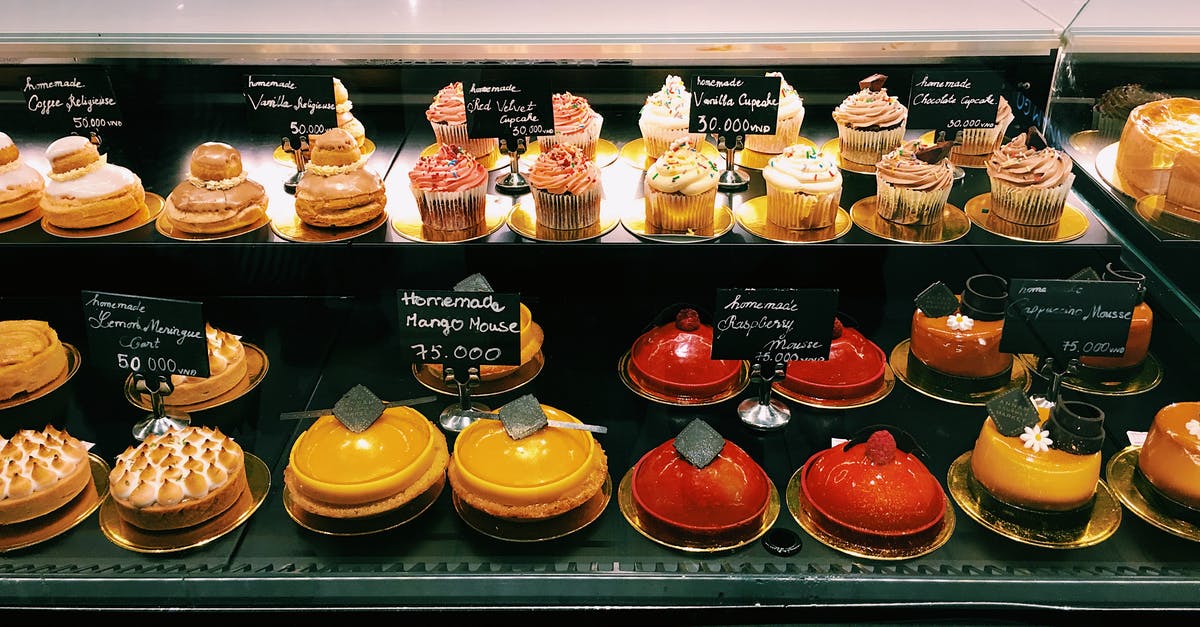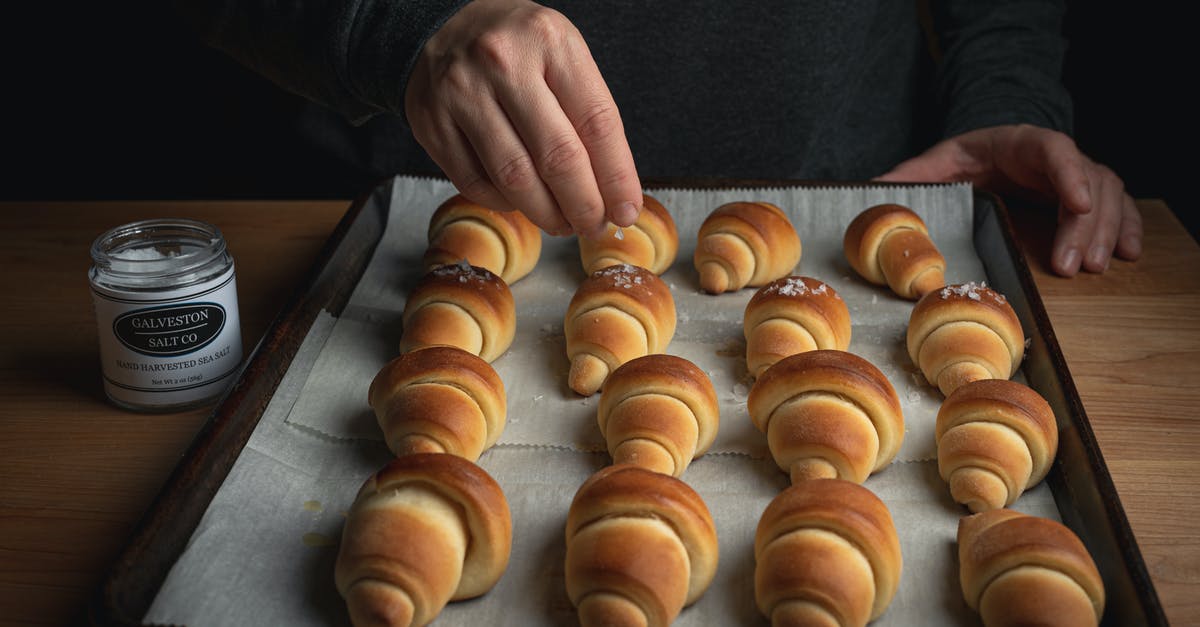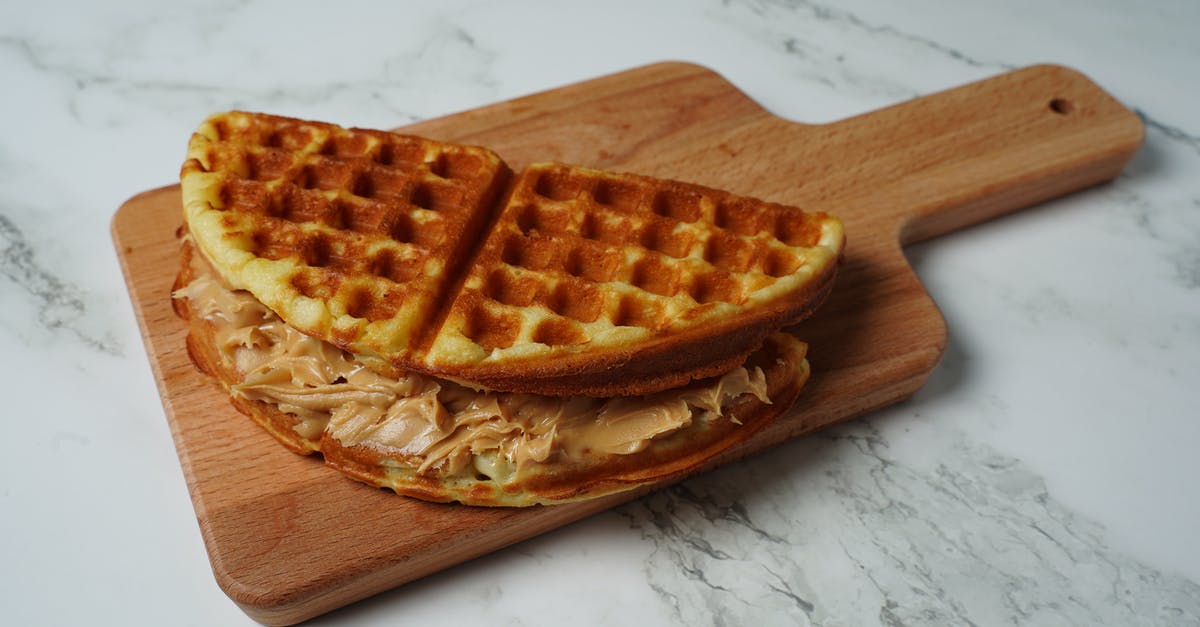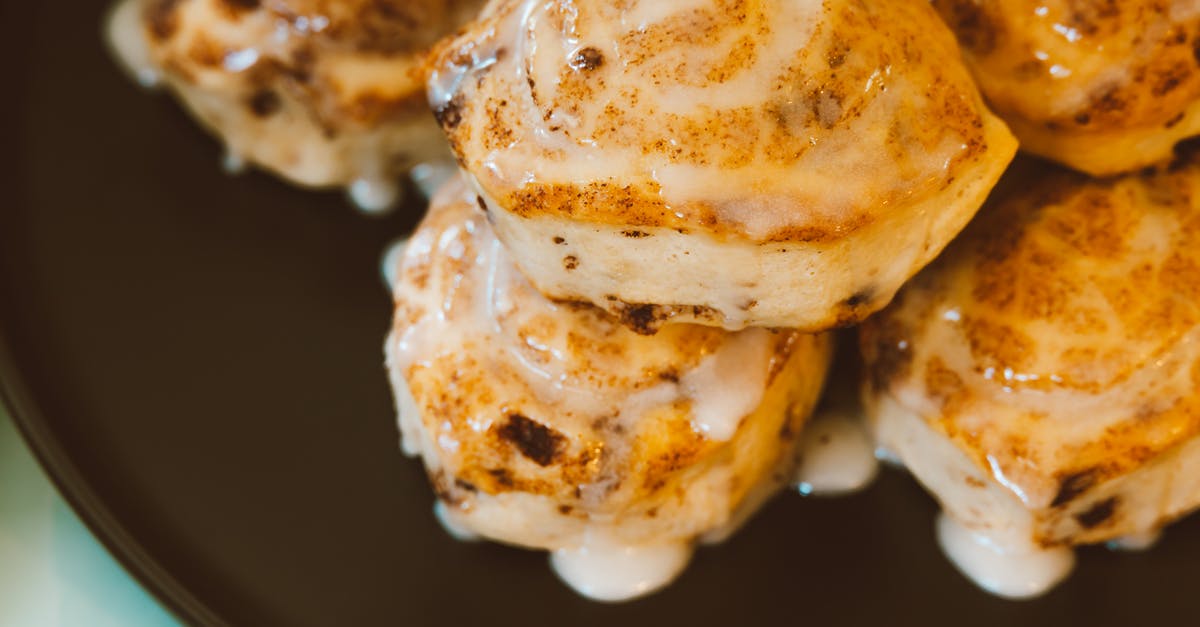When baking what works well as a sugar substitute?

I'm curious about what I can use for a sugar substitute while baking. I'm not interested in artificial sweetners, really. For instance, I've found that apple juice works well in some muffins. Are there any substitutes that work particularly well with other baked goods? Any general rules for selecting a substitute?
Best Answer
It's going to depend greatly on what you're baking. Sugar serves several different purposes beyond just providing sweetness. Besides sweetness:
tenderness by interrupting and minimizing gluten formation. Sugar promotes spread in cookies
Retain moisture and extend keeping quality (in baking sugar is actually considered a "liquid" ingredient due to its hygroscopic qualities - the ability to pull moisture from it's surrounding atmosphere).
Promotes browning and caramelizing
Assists in aeration and leavening (as in creaming butter and sugar to aerate the dough)
stabilizes egg whites
Provides food for yeast growth and fermentation
In some instances you might be able to use a syrup (honey, corn syrup, molasses, etc.) but not in all cases. For instance the granular nature of sugar is necessary for aeration of cookies and cakes because the jagged edges create air pockets as they pass through the fat.
Syrups primarily serve the purposes of sweetening, browning, and moistening. Honey could be used in muffins that are being made using the muffin method (aka two-bowl method) because this method would use a liquid fat (melted butter/oil) but not in the creaming method (producing a more cakelike structure from the creaming process). When using syrups you have to account for the addtional moisture that they provide. From: "How Baking Works" (Paula Figoni) "The National Honey Board recommneds the substitution for using honey in place of granulated sugar. This accounts for both the amount of water in honey and for its intense sweetness: use 1 pound honey in place of 1 pound granulated sugar; reduce water (or other liquid) in the formula (recipe) by 2.5-3 ounces."
Overall, when making substitutions of ingredients that are critical to the structural and eating qualities you probably will not be able to replicate the same results with the substitution. In the end, it will often be a case of "what is the next best thing" and realizing there will be quality differences in the finished product.
Pictures about "When baking what works well as a sugar substitute?"



What is the best substitute for sugar in baking?
6 Sweet Sugar Substitutes for BakingWhat can I use instead of sugar substitute?
Common sugar substitutes and sweeteners- Maple syrup. Type: Natural sweetener. ...
- Date paste. Type: Natural sweetener. ...
- Honey. ...
- Coconut sugar. ...
- Agave nectar. ...
- Monk fruit extracts (brand names: Nectresse, PureLo) ...
- Stevia extracts (brand names: Pure Via, Truvia, SweetLeaf) ...
- Xylitol (brand names: XyloSweet, Ideal, PolySweet)
How to SUBSTITUTE SUGAR in Your Baking \u0026 FREE Chart! Gemma's Bold Baking Bootcamp 2
More answers regarding when baking what works well as a sugar substitute?
Answer 2
Stevia is a natural sweetener that doesn't contain sugar.
http://en.wikipedia.org/wiki/Stevia
It's been getting a lot of attention in the low carb camp lately.
Answer 3
I know you are not vegan, but Isa Chandra Moskowitz has terrific baked goods recipes that often use maple syrup, with fantastic results. http://www.theppk.com/
Answer 4
My basic wheat bread recipe calls for either sugar or honey; the differences are subtle. However, the extra moisture of the honey is overwhelmed by the variation in how much flour it needs from batch to batch; more precise recipes may require a bit of tweaking.
If it's glucose that you need to avoid, fructose works really well in most cases, particularly because it can be obtained as the same white granules. It's sweeter than sucrose, so you usually want to cut the amount by about a quarter. That has the side effect of reducing some of the calories from your baked goods, but can affect texture or browning in certain recipes. The differences are more pronounced in candies and ice creams, but baking should be just fine.
Answer 5
I have just been reading "Naturally Sweet", a cook book by America's Test Kitchen. I got it from a local library. It explains how their cooks went through a lot of recipes and tried to find alternatives to baking with processed cane sugar. They found that using alternatives not only affected taste, but also texture in baked foods.
The beginning of the book explains the cane sugar processing process, and also explains the alternative sweeteners the cooks used. Some substitutions were honey or fruit like ripe bananas. But, others were Sucanant and coconut sugar. These latter alternatives are a lot more expensive than processed cane sugar. In some cases, the cost was almost ten times more expensive from my store research.
Then in each individual recipe the authors/cooks explain how they tested the recipe with alternative sweeteners and what other ingredients they found they needed to add. For example: the granola bar recipe needed a binder. They found that using Sucanant somewhat bound the ingredients when it melted during baking; but, they added egg whites to make the binding better.
I think the book is definitely worth getting from a library as it has a lot of recipes, and also because it has explanations about the different sugar substitutes and their testing processes.
I should also note that in each recipe the authors/cooks list the opposite substitution. That is, they give the changed recipe using the alternative sweetener, and then list the cane or brown sugar equivalent of what you could use instead. The authors/cooks also list the different amounts of sweeteners you need to use as it is not a 1:1 ratio.
I want to try some of the reworked recipes and see how the step by step testing process of altering the recipes by using substitute sweeteners and added ingredients make a taste difference in the end product. I plan to use the recipes that use honey or fruit, not the expensive substitutions like Sucanant. One reason I want to try some of the recipes because one review I read said that the chocolate chip cookie recipe was really outstanding.
Answer 6
Splenda sells bags that work 1:1 as a sugar substitute (though sometimes i seem to need more). Doesn't taste quite the same but I think it's better than eating sugar.
Answer 7
If you intend to use it primarily fro sweetening, moisturization or browning, you can use date syrup. Around here it's called Silan. It's somewhat similar to honey in texture, but has a darker colour, and lacks the sharp after-taste of honey, and is made of dates. I'm not sure how it caramelizes, and I suspect it wil do you no good for aeration or stabilizing egg-whites. I don't really bake (bad at chemistry) but I do use date syrup for sweetening recipes when cooking. It's actually very sweet, and I find it easier to work with than sugar.
Answer 8
Agave Nectar is a great alternative to sugar. It may be used to replace any wet sweetener such as honey or corn syrup, but consider that it is sweeter than honey so reduce the amount used by about half depending on your tastes.
As a replacement for sugar, reduce the amount of agave by 1/4 to 1/2 depending on your tastes. (I do not like super sweet goods and often reduce by 1/2) and reduce the amount of liquid in the recipe by a quarter cup.
The taste is wonderful and the product is light and nutritious.
Answer 9
You can use grated jaggery or molasses as sweetener in cakes .Instead of beating powdered sugar with egg ,you can try with jaggery ,it came out to be beautiful ,sweet and healthier too.But I think it is best to try them with chocolate cakes.I have a recipe chocolate cake with jaggery You can also use dates
Sources: Stack Exchange - This article follows the attribution requirements of Stack Exchange and is licensed under CC BY-SA 3.0.
Images: Vo Thuy Tien, Skyler Ewing, Kai-Chieh Chan, Jess Loiterton
